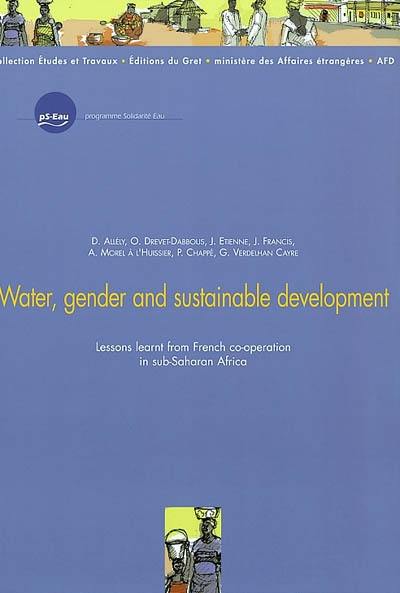
Fiche technique
Format : Broché
Nb de pages : 110 pages
Poids : 345 g
Dimensions : 21cm X 30cm
EAN : 9782868441201
Water, gender and sustainable development
lessons learnt from french co-operation in sub-Saharan Africa
Quatrième de couverture
Because women's contribution to development is still poorly recognised, if not undervalued, this document attempts to draw up a full picture of how men and women are taken into account in development activities in the field of water and sanitation. It draws extensively on lessons learnt in the context of French co-operation.
The work begins by reviewing the main changes to have occurred since the 1970s not only in international meetings, in research, and in terminology, but also in specific approaches aimed at involving women in development processes. It goes on to describe the "traditional" ways in which power is shared between social groups in African societies (according to criteria of age, ethnic group, status, religion and gender). The third part analyses the perceptions, knowledge and practices of male and more specifically female users, since the latter play a predominant part in relation to water and sanitation. Next, using case studies, the way in which the various types of user are taken into account, at all stages of hydraulics projects, is explored.
The final part defines what is meant by a demand-driven approach, and presents the various ways in which this can be evaluated. In the light of all these observations, the work ends with recommendations drawn up jointly by the French Ministry of agriculture and the environment (MAE) and the French development agency (AFD) with the objective of effectively involving users as a whole in water and sanitation management.





